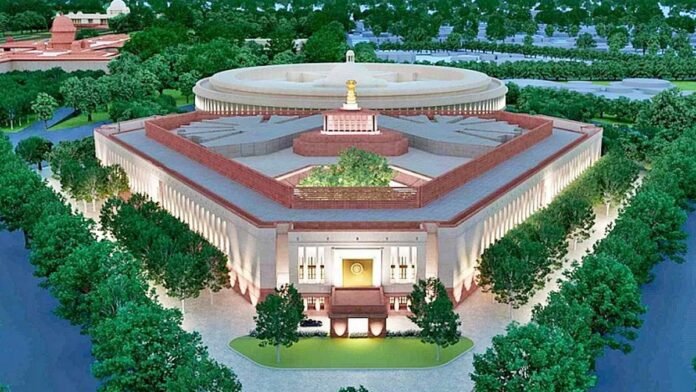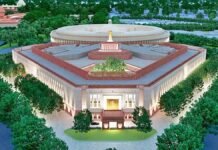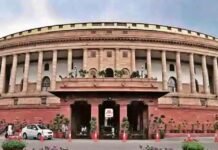
New Delhi: The upcoming winter session of Parliament promises to be an intense and potentially contentious period, with critical bills and international issues set to dominate discussions. Parliamentary Affairs Minister Kiren Rijiju announced that the session will run from November 25 to December 20 for a total of 25 working days. Several high-profile bills, including the controversial Waqf Amendment Bill, are expected to be introduced, alongside discussions about the strained diplomatic relations between India and Canada.
Key Highlights of the Winter Session 2024
| Details | Winter Session 2024 |
|---|---|
| Session Duration | November 25 – December 20 |
| Total Working Days | 25 days |
| Key Bills to be Introduced | Waqf Amendment Bill, others |
| Major Issues for Discussion | India-Canada Diplomatic Dispute |
Waqf Amendment Bill Sparks Tension Among Political Leaders
One of the most anticipated and divisive pieces of legislation this session is the Waqf Amendment Bill, which aims to introduce changes to the governance and administration of waqf properties in India. The bill, which has already seen its share of controversy, was previously sent to the Joint Parliamentary Committee for review. However, this decision sparked significant backlash from opposition leaders.
Controversies within the Joint Parliamentary Committee (JPC): Several members of the JPC, including opposition leaders, have criticized the committee’s proceedings, accusing Chairman and BJP leader Jagdambika Pal of stalling productive discussion. Tensions ran so high that some opposition members have threatened to leave the committee if their concerns aren’t addressed, with TMC MPs even claiming injury following altercations in recent meetings.
The situation became heated when TMC MP Kalyan Banerjee and BJP MP Abhijit Gangopadhyay clashed during a committee session, resulting in injuries for Banerjee. As disputes continue to escalate, Jagdambika Pal issued a stern warning to committee members, underscoring the need for discipline and hinting at possible disciplinary action.
India-Canada Diplomatic Dispute Likely to Dominate Discussions
Another key focus during the winter session is expected to be the ongoing diplomatic dispute between India and Canada. Relations between the two countries deteriorated after the Canadian government implicated Indian diplomats in their investigation into the murder of Hardeep Singh Nijjar, a Canadian national associated with the Khalistani separatist movement.
Timeline of India-Canada Diplomatic Fallout:
- October 14: Canada labels Indian diplomats as “persons of interest” in Nijjar’s murder investigation.
- Diplomatic Expulsions: India recalled several diplomats from Canada and expelled six Canadian diplomats in response.
- Accusations by Canadian Government: High-ranking members of the Trudeau administration have accused Union Home Minister Amit Shah of targeting pro-Khalistan activists in Canada.
- India’s Response: The Ministry of External Affairs rejected these allegations, describing them as “absurd and baseless,” and issued a strong diplomatic protest.

This issue has not only strained bilateral ties but also raised concerns about national security and foreign policy, making it a critical topic likely to draw heated debate in Parliament.
Opposition and Government Set for Intense Debates
With multiple high-stakes issues on the table, including both domestic legislative reforms and international diplomatic challenges, this winter session is expected to be one of the most consequential in recent years. Members from both sides of the aisle are preparing for debates that may shape India’s future direction in policy and international relations.















































